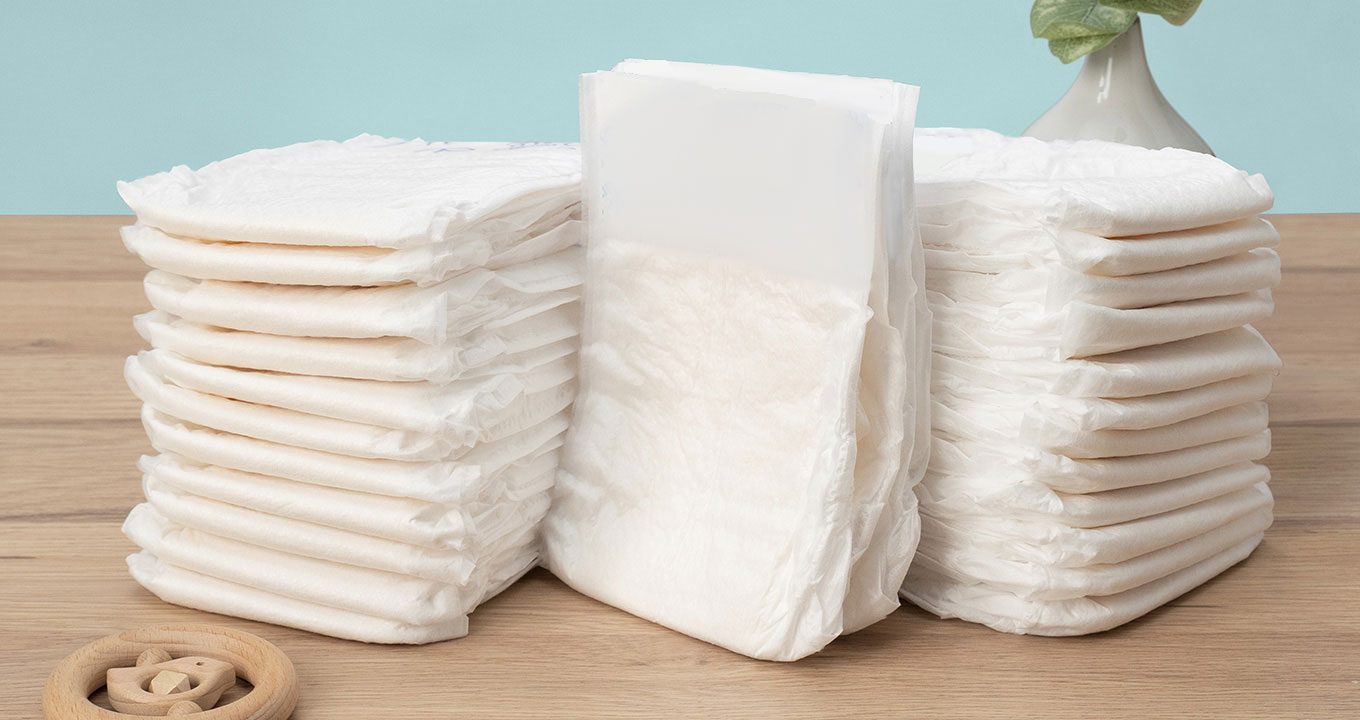
Disposable Baby Diapers and Biodegradable Baby Diapers: What's the Difference?
2023-03-28 22:00
Disposable Baby Diapers and Biodegradable Baby Diapers: What's the Difference?
Disposable baby diapers have become a staple in the lives of parents and caregivers around the world. They provide convenience, comfort, and hygiene for babies, but they also raise concerns about their environmental impact. As a result, biodegradable baby diapers have emerged as an alternative that promises to be more environmentally friendly. However, the truth is that there is not much difference between disposable and biodegradable diapers, and their biodegradability is not as straightforward as we might think.

First, let's define what we mean by disposable and biodegradable diapers. Disposable diapers are made of a combination of non-woven fabrics, tissue paper, and absorbent materials like super absorbent polymer. They are designed to be used once and then discarded, typically in the trash. Biodegradable diapers, on the other hand, are made from plant-based materials such as bamboo, corn, or sugarcane, which are supposed to break down naturally over time.
The main selling point of biodegradable diapers is their supposed eco-friendliness. They are marketed as a more sustainable option because they use renewable materials and are said to degrade faster than regular disposable diapers. However, the reality is more complicated than that. While biodegradable diapers are certainly better for the environment than regular disposable diapers, they are not a perfect solution.
For one thing, the term "biodegradable" is not regulated, which means that manufacturers can make various claims about the biodegradability of their products without having to back them up with evidence. Some biodegradable diapers may break down quickly under certain conditions, while others may take longer or not break down at all. The rate and degree of biodegradability depend on factors such as temperature, moisture, and the presence of microorganisms that can break down the materials.
Moreover, biodegradable diapers still generate waste, and they still contribute to the use of resources and energy in their production and transportation. While it's true that they use renewable materials, these materials still need to be grown, harvested, processed, and transported, which requires energy and resources. In addition, some biodegradable diapers still contain plastic or other synthetic materials that do not break down easily, so they may not be as sustainable as advertised.
So, what about the degradation time of biodegradable diapers? It's important to note that the time it takes for a biodegradable diaper to break down can vary widely depending on the circumstances. Some manufacturers claim that their diapers can degrade in as little as 75 days, while others say it can take up to a year or more. However, in order for biodegradable diapers to break down properly, they need to be disposed of in a composting facility that provides the right conditions for decomposition. In other words, they need to be separated from regular trash and sent to a specialized facility. If biodegradable diapers are thrown in the regular trash and end up in a landfill, they may not degrade at all due to the lack of oxygen and sunlight.
In fact, even in the best-case scenario where biodegradable diapers are properly composted, they still take a significant amount of time to break down. According to a study published in the journal Environmental Science & Technology, it can take up to six months or more for biodegradable diapers to fully decompose under ideal conditions. This is because the materials used in biodegradable diapers are not as easily broken down as organic waste like food scraps or yard waste. While the degradation time of biodegradable diapers may be shorter than that of regular disposable diapers, it is still a relatively long time compared to other types of waste.
In conclusion, while biodegradable diapers are a step in the right direction towards more sustainable baby products, they need to be disposed of properly in order to break down effectively.
Get the latest price? We'll respond as soon as possible(within 12 hours)















